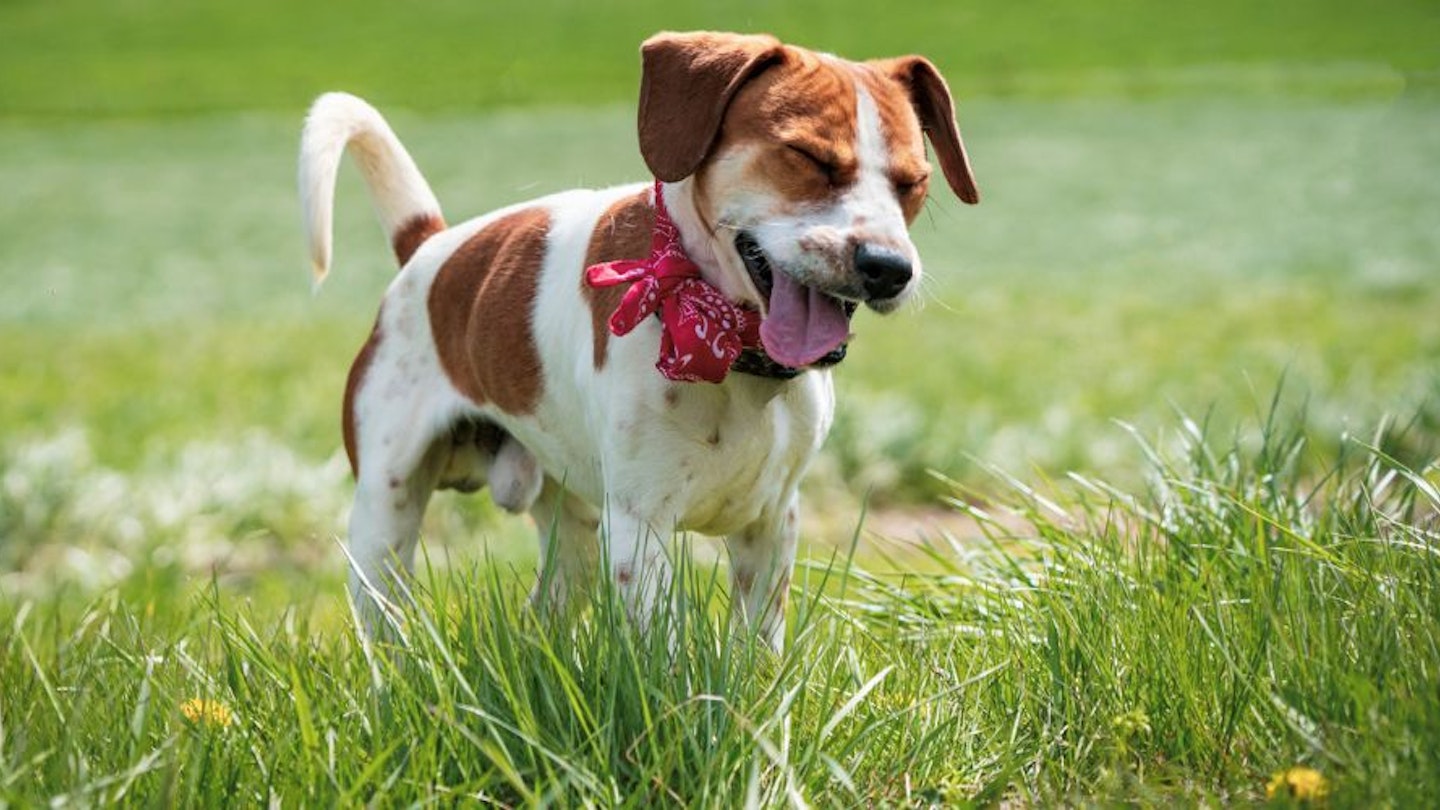It's not just us that suffer when there are high levels of pollen, dog hayfever is more common than you might think. Hayfever symptoms for humans usually start to kick in between late March and September and are worse over the height of the summer months, especially when it's warm, humid and windy. The same goes for our pooches. While there are no cures for dog hayfever, there are some products you can buy to relieve your hound's symptoms.
Sneezing and coughing are symptoms that are found in both humans and dogs alike, but your pooch may start to scratch all over and have red, sore or flaky skin if they're suffering from hayfever. If your dog is really suffering, your vet can recommend skin creams and sprays, prescription dog shampoos, ear and eye drops or even steroids in severe cases.
Dog hayfever at a glance:
• Best allergy liquid: 100% Natural Allergy Liquid
• Best liquid skin supplement to add to food: YuMOVE Skin & Coat Care Itching
• Best shampoo for itchy skin: Exmarid Deep Cleansing Dog Shampoo
• Best skin cream: Johnsons Tea Tree Skin Cream For Dogs & Cats
• Best hypoallergenic soothing spray: TropiClean OxyMed Medicated Dog Spray for Pets
However, for dogs that are experiencing milder symptoms, there are some products you can buy to treat your dog over the counter, such as allergy relief sprays, shampoos for itchy skin and much more. There are also pet supplements they can take to soothe their skin and hopefully stop them from scratching.
We've rounded up all the best products and remedies that, while not specifically made to relieve dog hayfever, will help you to manage your pooch's symptoms at home.
Best products for easing dog hayfever
Best allergy liquid
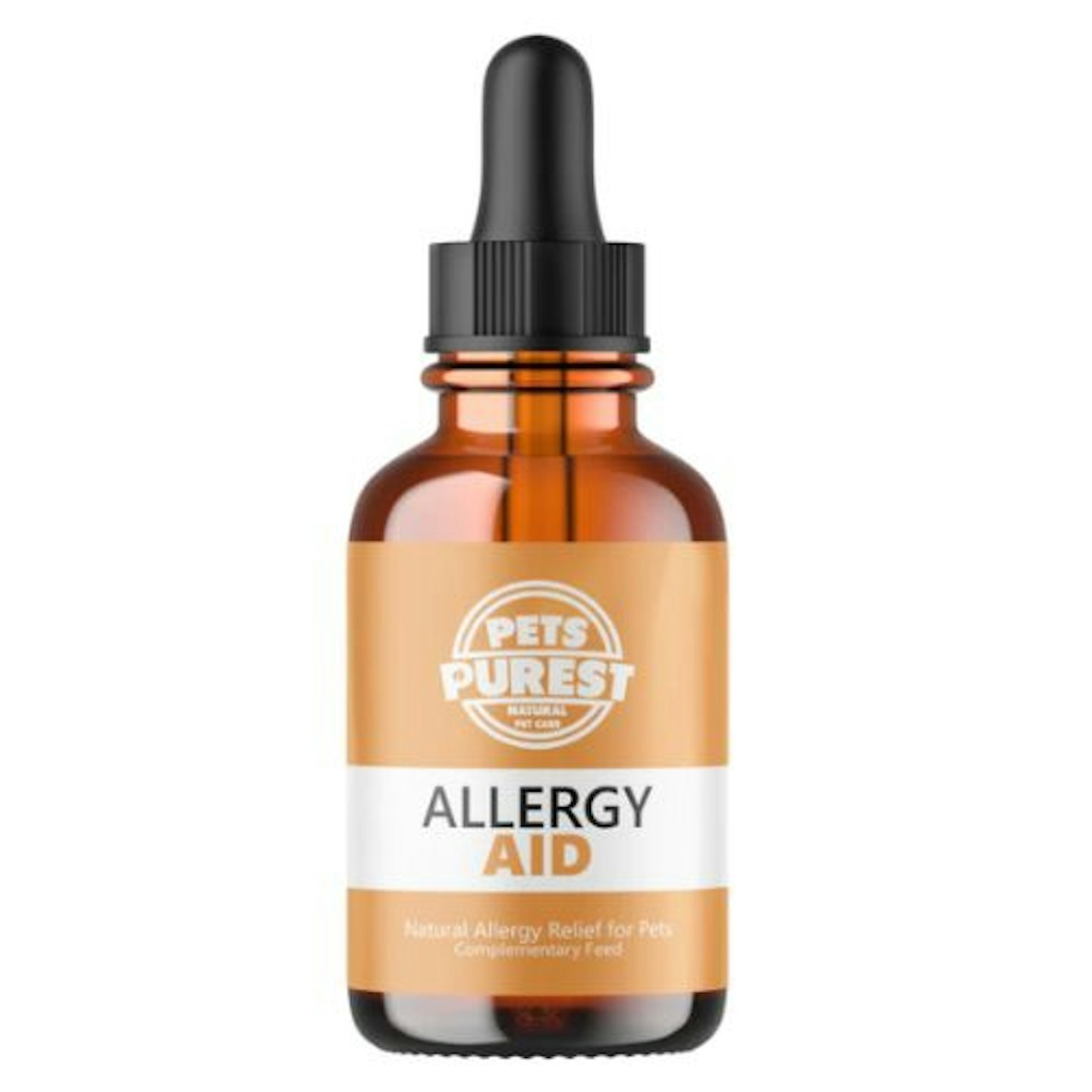 Pets Purest
Pets Purestwww.petspurest.com
Designed to lessen symptoms such as itching and hot inflamed skin, this 100% Natural Allergy Liquid from Pets Purest will offer fast and effective relief for your dog by inhibiting histamine release in the body. This natural formulation contains Ginkgo, which is known for its support in cognitive development and improves circulation around the body, plus it has lots of powerful antioxidants, so it offers many benefits in addition to hayfever relief.
Customer review: "My dogs, who suffer seasonal allergies to dust, pollen and grass have stopped itching after having a drop in each meal. Long may it last."
Pros
- Can be used on dogs and cats
- Approx. 1000 drops per pack, so it's long-lasting
Cons
- The larger the dog, the more drops they need so the bottle will get used up more quickly on larger dogs
Best liquid skin supplement to add to food
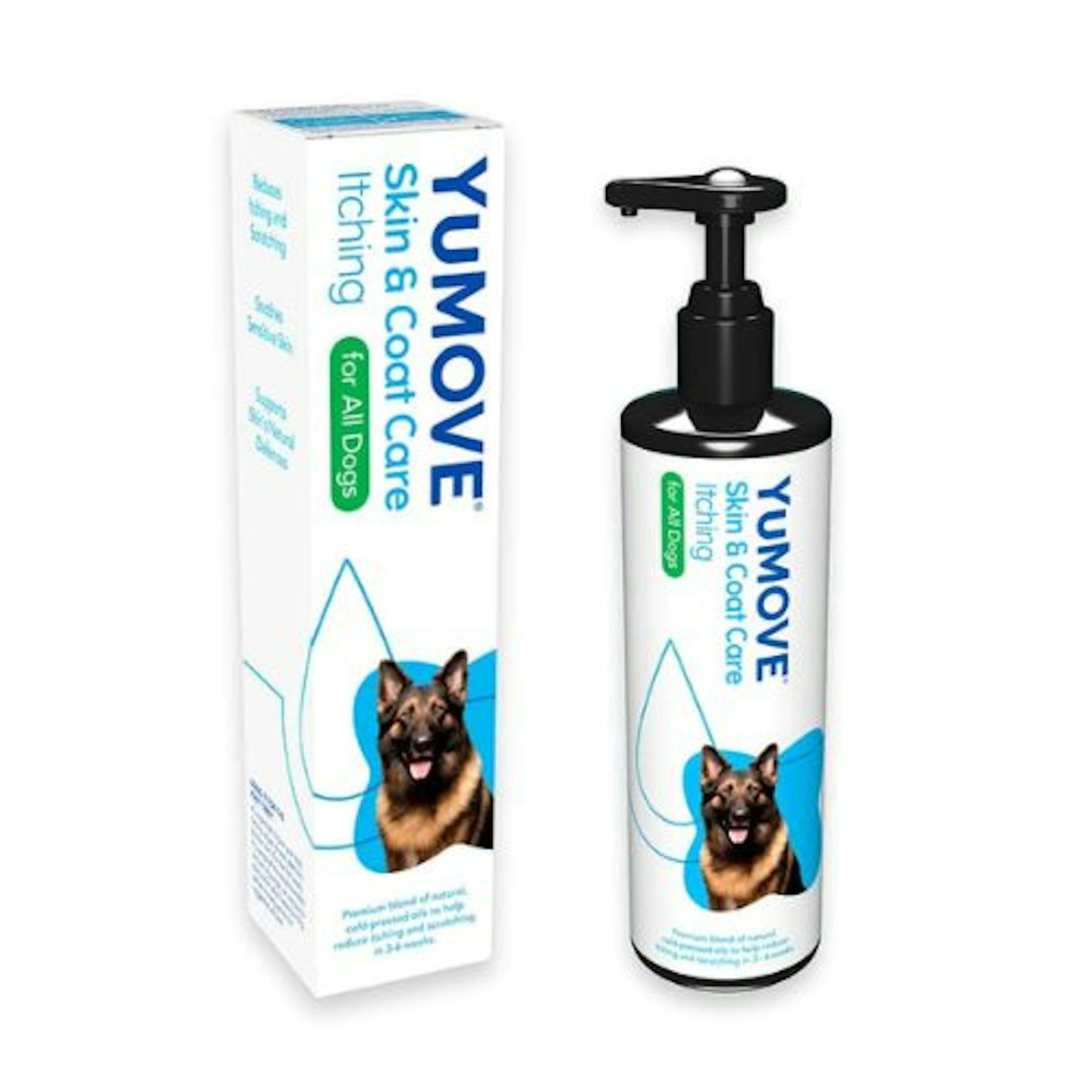 YuMOVE
YuMOVEyumove.co.uk
Help to reduce your pooch's urge to scratch with the YuMOVE Skin & Coat Care Itching supplement. It calms and soothes with the right blend of Omega 3 oils and nourishes skin from within to help with hayfever symptoms. This oil is naturally tasty and is easy to introduce to your dog as you simply pump the oil over your dog's food in the recommended dosage for their breed and size.
Customer review: "I was given a trial sample of YuMOVE Skin and Coat care which I tried with my bulldog who was suffering with a few issues. Getting rid of grain in his diet helped a lot but the benefit of YuMOVE has really been a game changer."
Pros
- Enriched with Omega 3 for cold-pressed Salmon oil
- Protects skin from irritants and nourishes soft and supple skin
Cons
- May not be suitable for dogs with skin allergies
Best solid skin supplement to add to food
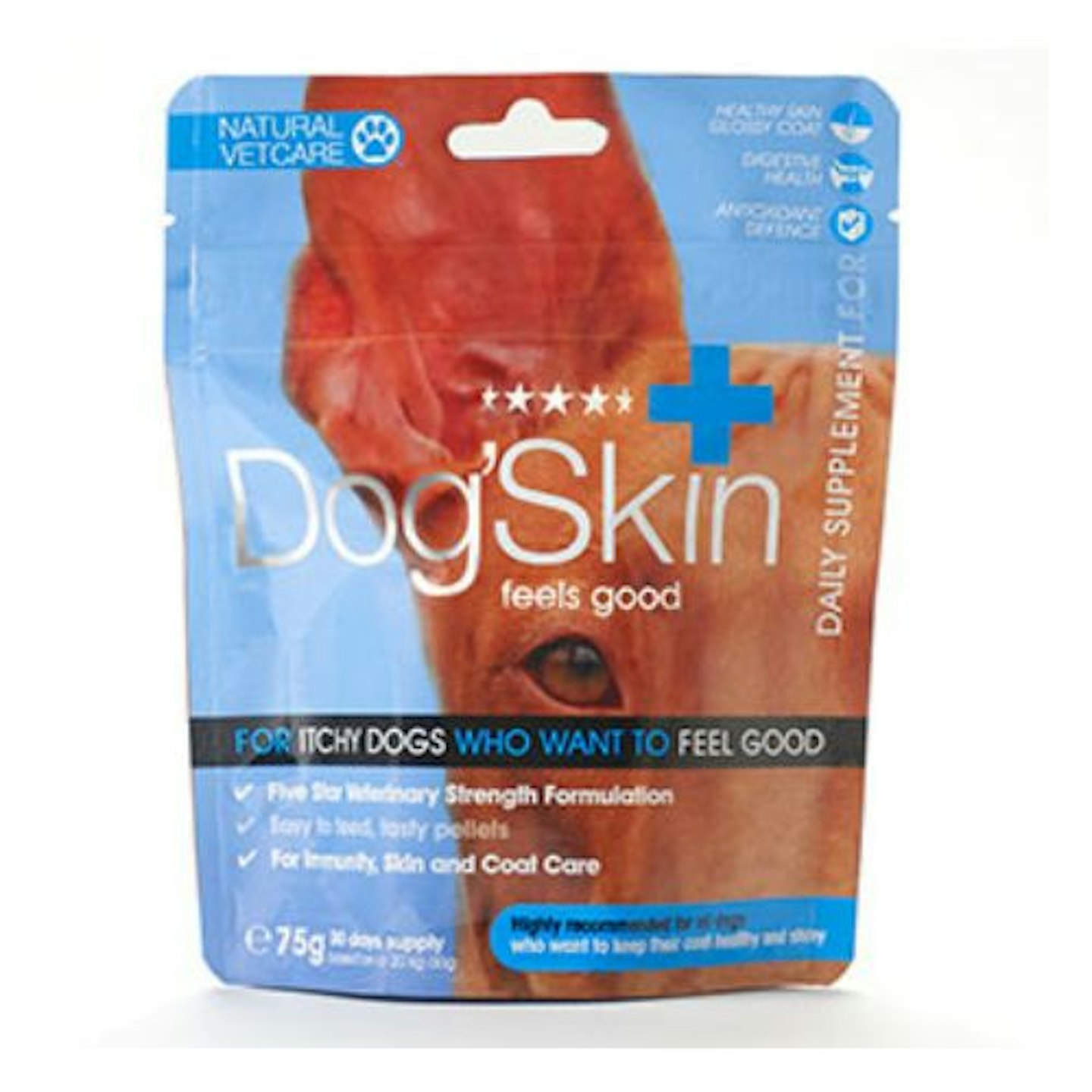 Pets At Home
Pets At Homewww.petsathome.com
The Natural Vetcare Dog'skin Supplement contains a blend of Omega 3 and 6 essential fatty acids, skin nutrients and antioxidants to provide complete skin and coat support at the same time as aiding immunity and digestive health. The levels of Omega oils and sea algae extract included replenishes the skin barrier and help it to defend against environmental allergens and pathogens so your pooch can return to a healthy itch-free state.
Customer review: "My dog started to get itchy over the summer months due to allergies. Tried shampoos, medications ect. After giving this a go, his problem has completely resolved. Easy just to add to his food, good value for money."
Pros
- Can be added to your dog's daily feed
- Helps with skin repair and balancing the immune system
Cons
- Contains poultry protein, so won't be suitable if your dog has an allergy to this
Best shampoo for itchy skin
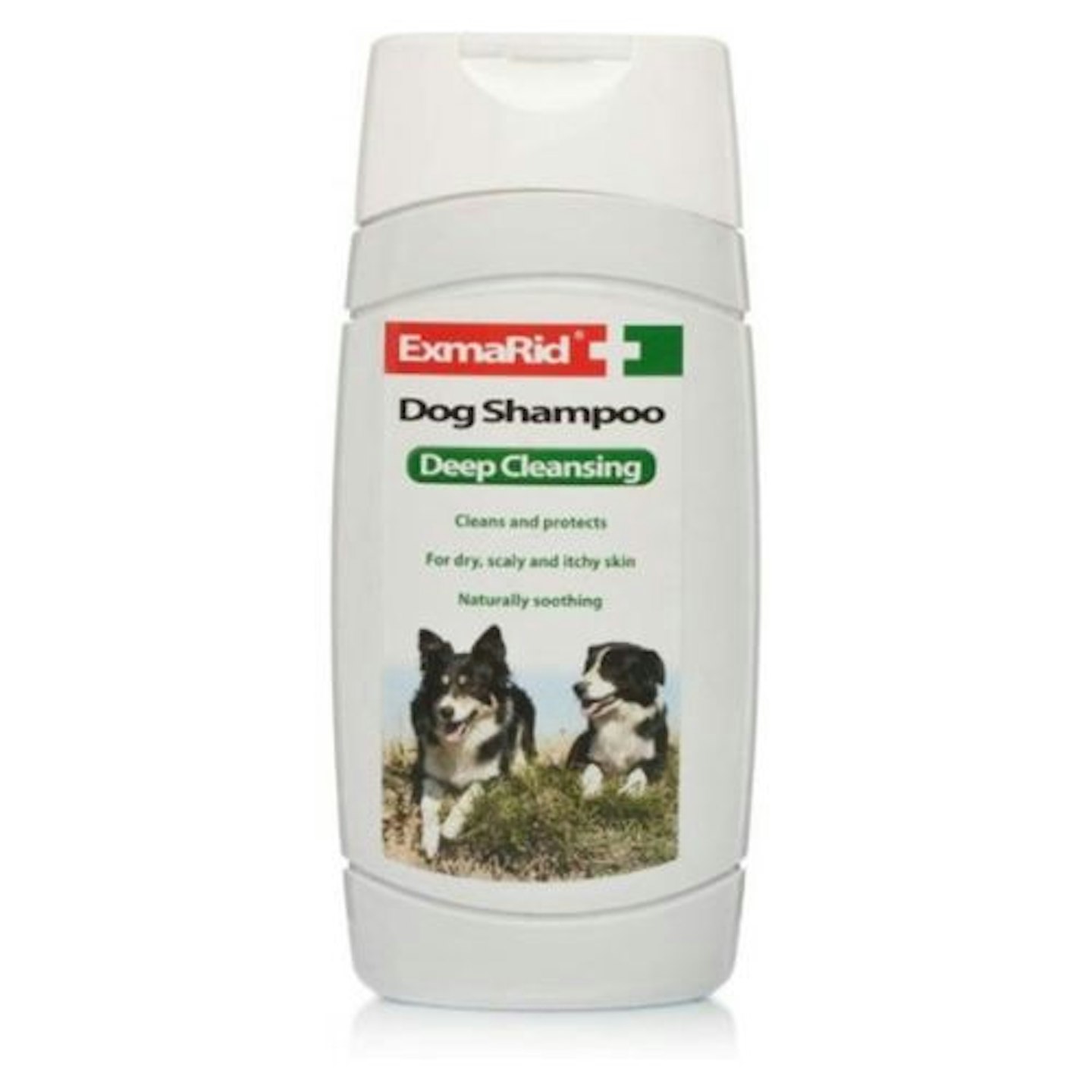 Amazon
AmazonMade for dogs prone to dry, itchy and flaky skin, this Exmarid Deep Cleansing Dog Shampoo will do a great job of soothing and protecting skin while also washing off any excess pollen that may be lurking in their fur. Its triple-action formula contains a natural anti-scurf alternative to coal tar that will leave your pet's coat in a beautiful condition. This cleansing shampoo is available to buy in either a 250ml or 750ml bottle.
Customer review: "Did try others which did not do the job. Great product gets used every time dog needs a wash, dog no longer scratches."
Pros
- Stops itching
- Soothes and protects skin
Cons
- Some reviewers have reported that it doesn't smell very nice
Best skin cream
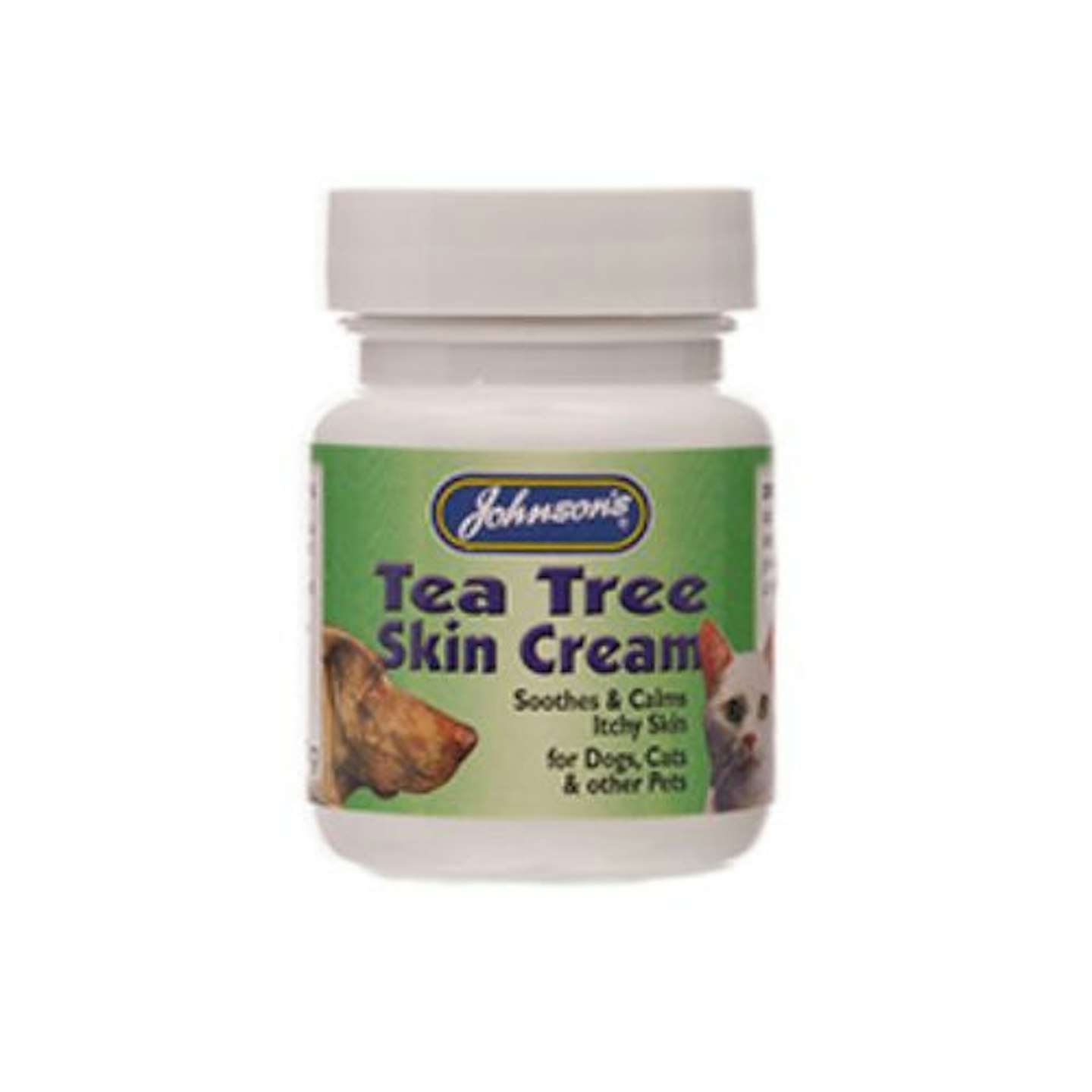 Pets at Home
Pets at Homewww.petsathome.com
If your hound has made their skin sore and has cuts and scrapes all over their body from hayfever itching, this antiseptic cream from Johnsons will help. Johnsons Tea Tree Skin Cream For Dogs & Cats soothes skin and promotes healing as it contains tea tree, lavender and aloe vera oil. It can be used on dogs and puppies over 12 weeks old, as well as other animals, and needs to be applied and rubbed in twice daily to get its full effect.
Customer review: "Bought this hoping it would work on my jack Russel she gets a reaction to grass pollen every year costing me a fortune at the vets been applying it twice a day giving her antihistamine and covering her skin when she's outside seems to have worked the cream is really easy to rub into her dry skin caused by the itch scratch syndrome"
Pros
- Has healing properties as its antiseptic
- Made in the UK
Cons
- Not designed to be used on dogs aged under 12 weeks
Best hypoallergenic soothing spray
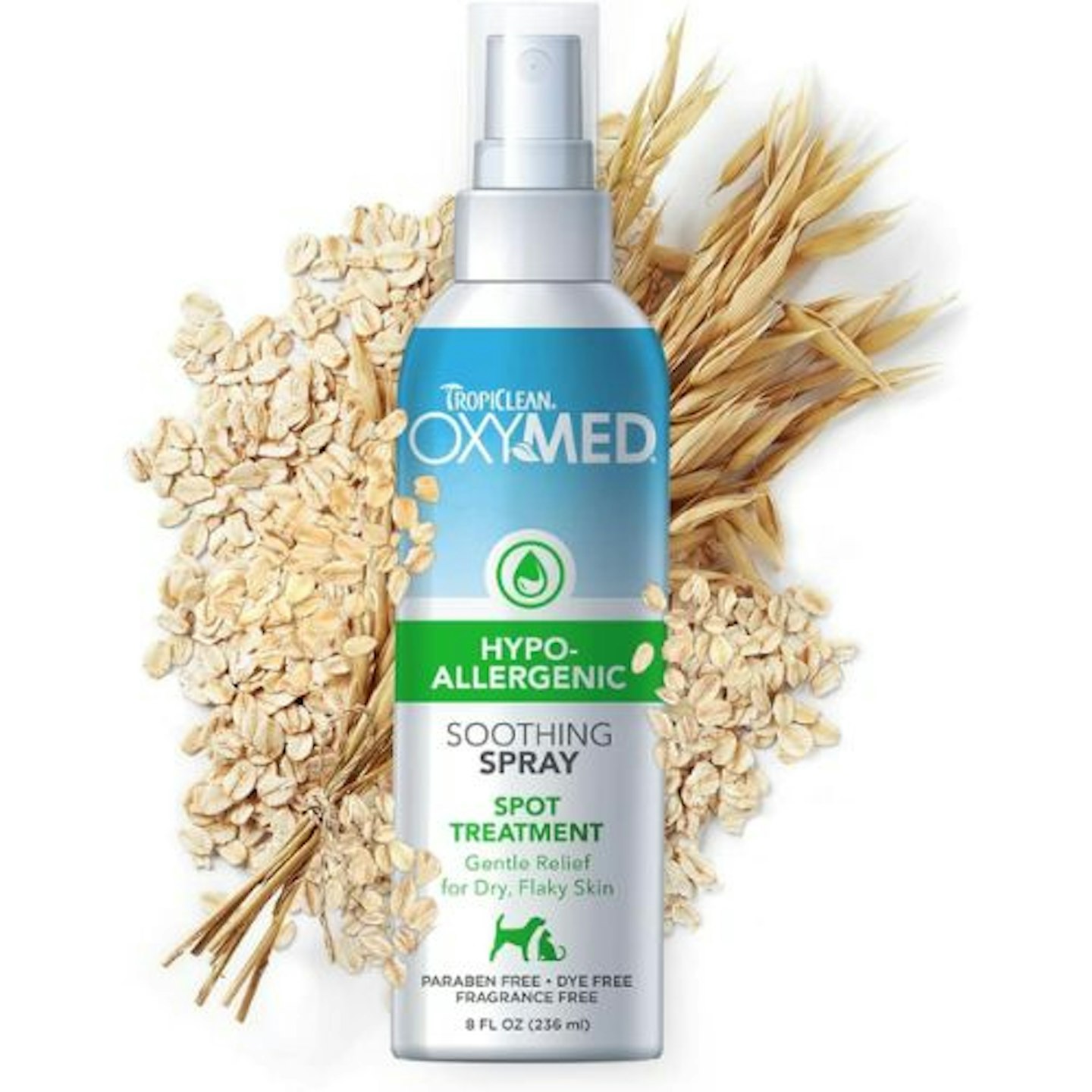 Amazon
AmazonParden, dye and fragrance-free, this hypoallergenic TropiClean OxyMed Medicated Dog Spray for Pets provides fast-acting aid from itching for pets with allergies and sensitive skin. It's specially formulated to help gently reduce swelling, redness and dandruff while offering itch and allergy relief. It also has nourishing and moisturising properties. The best bit? It doesn't need to be washed out, so you can spray as you see fit.
Customer review: "Our 2 year old pup has some issues with skin sensitivity from time to time and this solution has helped her so much. Because it comes in a spray bottle, it is a lot easier to apply than some other ointments that we use to help relieve some of her symptoms. This stuff seems so gentle and helps decrease how much she itches so that she gives her skin some time to heal. Overall, a really great spray for your sensitive pup!"
Pros
- Hypoallergenic
- Helps reduce swelling and redness
Cons
- Some reviewers found it wasn't as effective as other products
Best eye lotion for irritated eyes
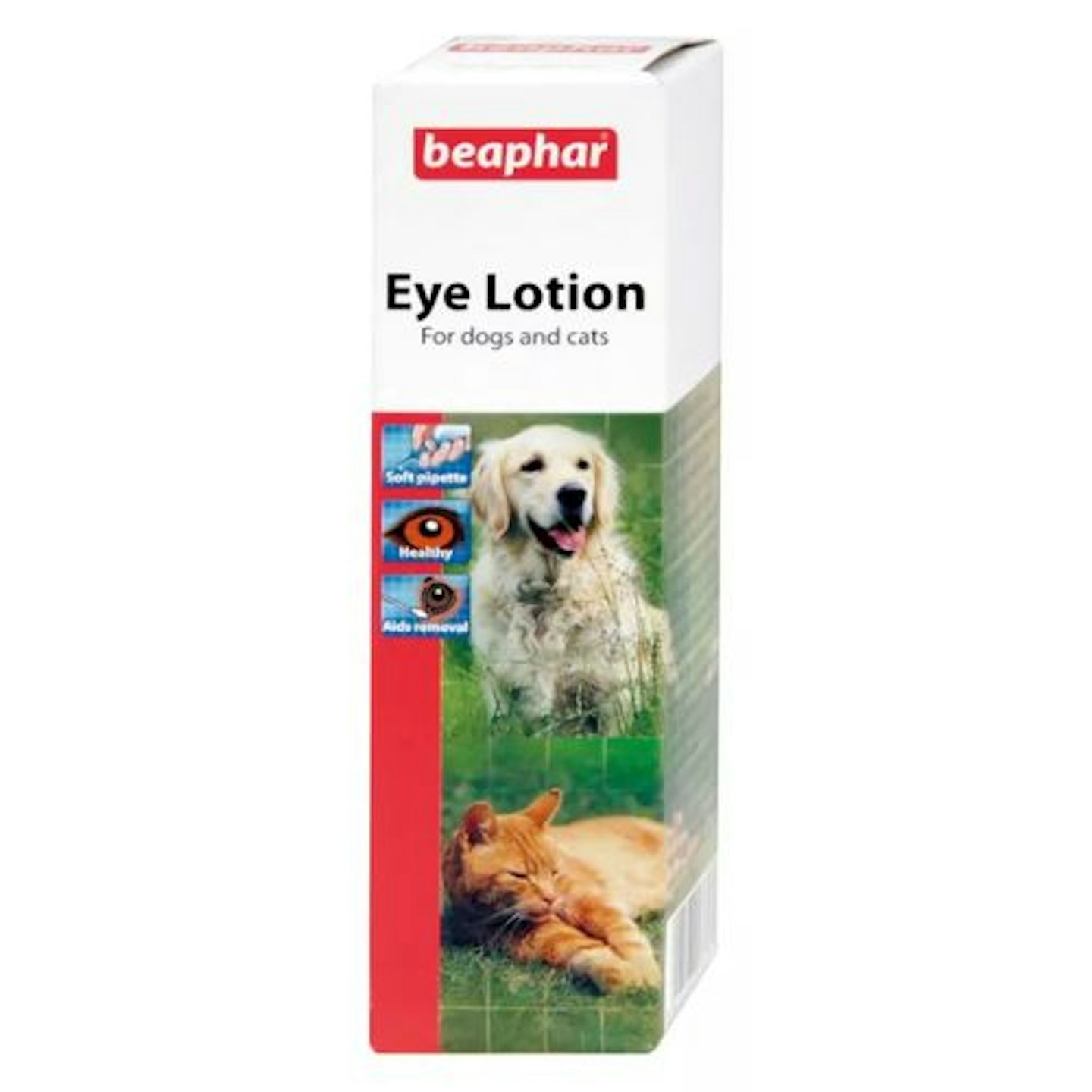 Viovet
Viovetwww.viovet.co.uk
If one of your dog's hayfever symptoms is running or sore eyes, this Beaphar Eye Lotion for Dogs & Cats should help to sort them out. It contains MSM, which is known for its properties in supporting healthy skin and will help to rejuvenate cells, leaving the skin moisturised and soothed. This solution is easy to apply and is ideal for cleaning in and around dusty and irritated eyes.
Customer review: "dogs eyes looked a bit watery after running through long grass, so brought this to refresh them and flush out any irritation. Seems to work."
Pros
- Keeps eyes clean and less irritated
- Can be used on dogs and cats over 12 weeks of age
Cons
- Some dogs may not like you putting anything near their eyes
Dog hayfever FAQs
What are the symptoms of hayfever in dogs?
Whilst we may suffer from a runny nose, watery eyes or a fit of sneezing, hayfever in dogs is different. Pooch & Mutt's resident Veterinary Surgeon, Dr Linda, has the vital signs to look out for to ensure your pup is not in any discomfort, so they can live their best life through to the late Summer months.
• All-over-scratching
• Red, sore or flaky skin
• Runny eyes and nose
• Frequent sneezing, coughing or wheezing
Can I give my dog hayfever tablets?
Dr Linda says "It's important to note that antihistamines or Piriton for humans are not always effective for dogs and can be toxic. Only administer them under the supervision of your vet. Always follow your vet's advice to ensure a worry-free and enjoyable summer with your furry companion."
How to relieve hayfever symptoms in dogs
Dr Linda also has some tips for how to manage your pooch's symptoms if they are suffering from hayfever.
Go for a walk early in the morning
"Schedule walks and outdoor activities for early mornings and late nights when the pollen count is lower due to cooler temperatures. Keep your dog on a leash in grassy areas to prevent them from rolling around and getting covered in pollen. Plan your walks to avoid areas with abundant weeds, woodland, or grasslands where pollen concentration may be higher."
Expose your pup to a range of pollen
"Research suggests that exposing your dog to a range of pollen like in grass, trees, and plants when they are young can help them build immunity to developing hay fever symptoms."
Mow your lawn
"Mow your grass in your garden regularly to keep it short. Keeping the grass short can also prevent grass seed injuries where seeds attach themselves to your dog's fur and, when undetected, can burrow into the skin."
Keep doors and windows shut
"During hay fever season, keep windows and doors in your home shut whenever possible. This will help minimise the indoor pollen count and give your dog some relief."
Increase their washing and grooming
"After a walk, gently wipe your dog to remove any pollen from their paws, fur, or face. Regular brushing will also help remove pollen from their skin, even if you can’t see it. If it’s a particularly hot day, and your dog is a fan of the garden hose, you can also hose them down to wash away pollen."
Regularly wash your dog's bedding and vacuum the areas they frequent the most
"Washing our bedding regularly and keeping the house clean is something humans do when suffering from hay fever, but don’t forget about your dog’s bedding too. Keeping this clean and any areas in the house they spend a lot of time in will help reduce allergens in the house."
Consider allergy testing
"If your dog is really suffering, it might be time to consider allergy testing. This is when your veterinarian examines your dog to determine the root cause of skin irritation, infections and discomfort. They may also recommend testing for specific allergens. Depending on the outcome, they may suggest immunotherapy - a treatment where your dog is administered with small doses of the allergen on a regular basis to reduce the symptoms of allergies, which can even potentially result in a permanent cure."
You can look at your pooch's genealogy and check for potential health problems and medication sensitivities with a dog DNA test kit.
Rosie Floyd is a Pets, Homes and Garden Product Writer for Take A Break Pets, specialising in all things dogs. She grew up always having at least one dog as part of the family and has experience in owning a variety of breeds, including Labradors, Cockapoos and Yorkshire Terriers.
